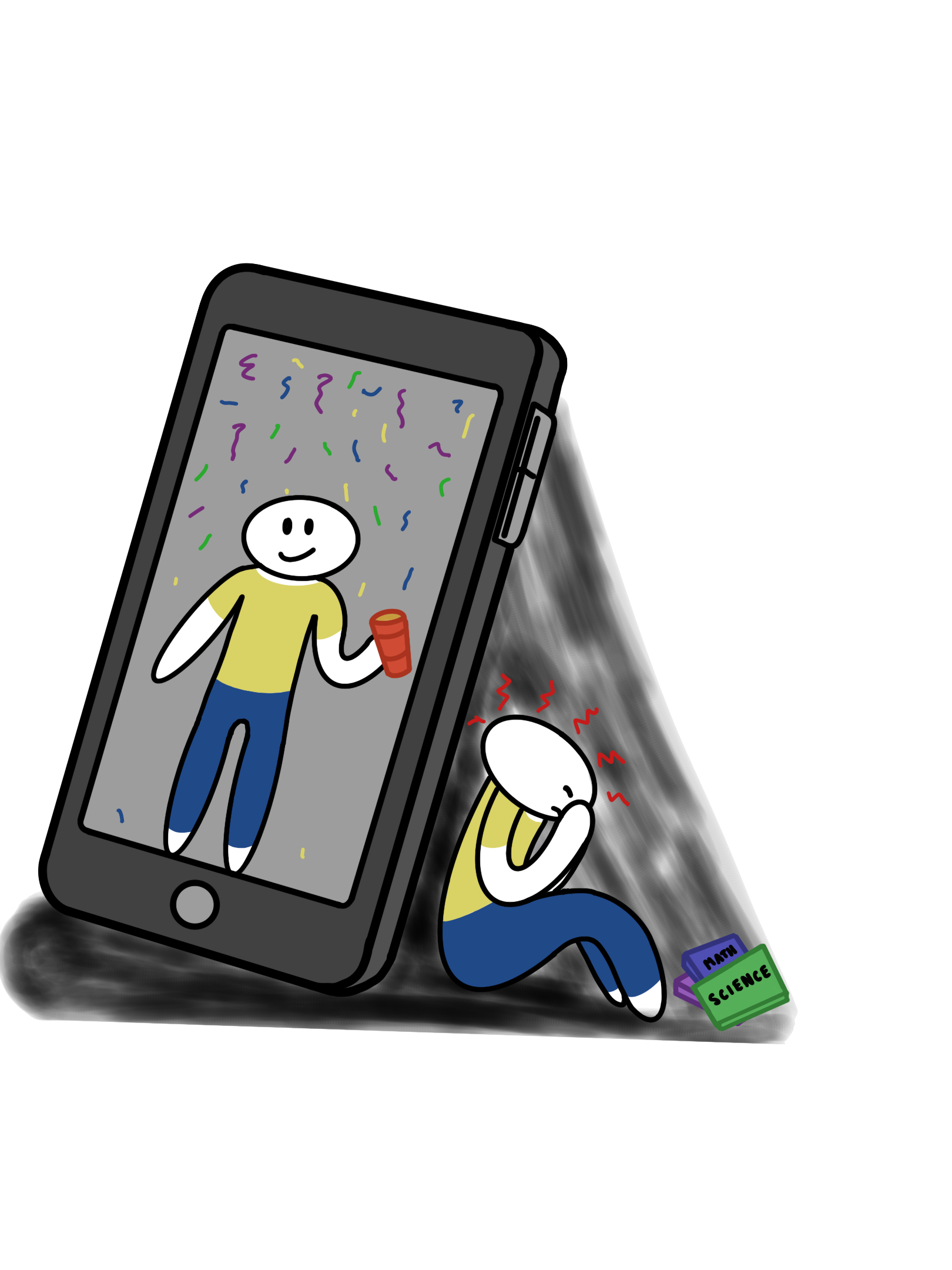

Loud parties, alcohol and a distinct social hierarchy on and outside the high school campus: the ingredients for the perfect teen life in the average Hollywood show. Stereotypes range from the popular, flawless-looking girls to the tall, athletic football players all the way to the sulky “goths” who supposedly wallow in existential feelings. Years of stereotyping and categorizing high school teenagers have planted teen and high school expectations in students’ minds from a young age.
“You set up those kinds of expectations for how cool teen life is going to be, [but when you become one] it seems super not fun to be in high school,” said freshman Alexa Sterry. “My expectations have definitely been influenced [due to the media portrayal of teenagers]. I watched ‘Degrassi’ … before high school started. I was like, ‘Wow, is that really what my life is gonna be like? I guess that’s … how high school goes, right?’ But it’s not like that. So it’s definitely a little bit disappointing compared to [the] movies.”
The media serves as entertainment, but the inaccuracies displayed create false expectations and standards surrounding high school teens.
“When I was younger, I had a different idea of what high school would be like, and now that I’m actually in high school, I understand that I’m not going to have as much time to do things that I thought … I would do,” said freshman Danielle Bluvshteyn.
Some students realize they cannot live the glamorous life they often see on television only after entering high school themselves. Struggles like losing several hours of sleep over homework, preparing for tests and demanding extracurriculars are often overlooked and downplayed for entertainment’s sake.
“It’s definitely a little bit disappointing compared to [the] movies”
“[On TV] it looks like [the high schoolers] have a lot of time, [and the filmmakers] forget the studying aspects and how we actually have a lot of homework to get done and how we don’t really have a lot of time to do the stuff that is oftentimes portrayed in movies,” Sterry said.
Although films and TV shows surrounding the teenage experience have their own entertainment values, they can be quite inaccurate.
“[In movies], high school kids are rebellious [and] crazy teenagers [are] doing crazy things all the time,” Sterry said. “[At] Aragon, I don’t think it’s like that. I don’t think there’s a ‘popular’ crowd. I don’t think there are ‘losers’ and ‘geeks’ or whatever. I think it’s pretty normal. Everyone’s having a good time.”
The media seems to draw a line at the age of 18. A common stereotype on TV is that anyone in their teen years who is under 18 lacks the maturity and ability to make reasonable decisions.
“Aragon teens do not really match that same standard that the media sets [about] teens … because a lot of [Aragon] teens are fully capable of doing many of the things that adults do,” said senior Blas Reyes. “It’s really not a matter of age, but a matter of how mature you are.”
Due to heavy media consumption, popular films and TV shows may have the ability to let fictional characters rule teenagers’ decisions.
“I don’t think there are ‘losers’ and ‘geeks’ or whatever. … Everyone’s having a good time”
“Everybody watches their favorite show and wants to emulate their favorite person,” said drama teacher Shane Smuin. “Every generation has that.”
In a poll sent out to the Aragon community, 59.2% of the 103 people surveyed indicated that they compare their high school experiences to the media’s depictions of teenagers. Despite teenagers’ heavy media consumption, 73.8% of Aragon’s student population isn’t influenced by the media to engage in risky behavior, suggesting that although the media sets unrealistic standards, teenagers today aren’t easily swayed by false portrayals.
Irrespective of the media’s largely detrimental impacts, the media also has the potential to help high school students.
“A lot of times we try [to] do the things that [we often] watch, like [participating] in extracurriculars we’ve watched over time,” Bluvshteyn said.
“The media helps give a sort of awareness to how people will act and how they should act,” Reyes said. “It also allows you to … set boundaries on yourself to ensure you don’t pass a sort of social norm that is set by the media.”
Many teenagers enter high school in hopes of living a life like popular movie characters, but that is usually nothing more than a distant fantasy. Movies and TV shows with their exaggerated depictions of high school are problematic and largely detrimental, but they still provide hope as they have the potential to raise awareness and create a strong sense of understanding in their teen viewers.




